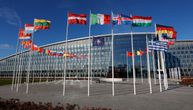Borrell: Dialogue between Belgrade and Pristina not going well, more needs to be done
We must push both sides to understand that there is only one solution to the problem and that it comes through dialogue, knowing that it will not be easy - said EU High Representative for Foreign Affairs and Security Policy Josep Borrell
EU High Representative for Foreign Affairs and Security Policy Josep Borrell has assessed that the dialogue between Belgrade and Pristina is not going well, i.e., that it is not unfolding at the pace it should, Deutsche Welle reports.
"The European Union has a mandate from the United Nations to coordinate, encourage and activate this dialogue. For this task, I appointed one of the best diplomats and I must say that more needs to be done, work needs to be done. We have to push both sides to understand that there is only one solution to the problem and that it comes through dialogue, knowing that it will not be easy. This is a very complicated issue. You know how difficult and complicated the history of the Balkans has been in the past 20-30 years. But the only solution to this problem is dialogue, and I am forcing it, but I am disappointed that we are not moving at a pace required by the problem," said Borrell.
When the Deutsche Welle journalist said that both sides insist on unresolved issues such as the establishment of the Community of Serb Municipalities and non-denial of war crimes, Borrell said that he could not go into the details of the complaints, while being aware that there are issues on which there are disagreements.
"That is the purpose of the dialogue. How can things be resolved if they don't talk to each other?," Borrell asked and added that he sees no other solution than dialogue.
Asked why he visited the countries of the Western Balkans just now, Borrell said that there is a great deal of Russian influence in the Balkans, which he sees as a critical moment for the (EU) enlargement process.
He assessed that the events in Ukraine will affect everything - from food prices to energy prices, and added that relations with Russia will never be the same.
"This will strengthen the union in Europe and should be a great incentive to overcome some of the problems we had, in order to speed up the accession process. But the most important thing today is not only the war between Ukraine and Russia, but respect for international law and human rights, the fight against the law of the jungle, where the strongest oppress the weakest without any justification, and therefore people should show love for freedom and love for democracy," said Borrell.
He stressed that the Western Balkans is important and is still at the top of the EU agenda, but that there are some events that are catalysts of history and change the relationship between various actors and factors.
"Russia will try to increase its influence in the Balkans, will try to win over people's souls, will try to conduct many disinformation campaigns, will try to convince people they are fighting against Nazism, that Zelensky is a war criminal or wants to commit genocide against Russia. We must oppose this narrative and there is a lot of misinformation in the Western Balkans," said Borrell.
According to him, there is a lot of Russian influence in the Western Balkans, but he hopes that the European influence will be greater.
When asked how he views Serbia's positioning regarding the events in Ukraine, he stressed that different countries in the Western Balkans have different relations with Russia.
"That is a historical and geographical fact, but mostly historical, and it is no secret that Albania is much more in line with the European Union in its foreign policy than Serbia. However, it must be said that Serbia voted against Russia in the UN General Assembly resolution, which is a very important step towards the European Union, talking about human rights, sovereignty of the people and respect for international law," Borrell concluded.
(Telegraf.rs)

